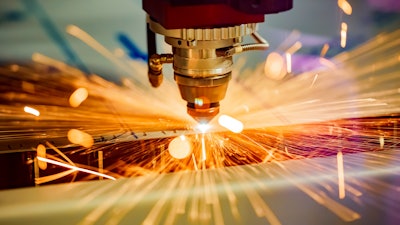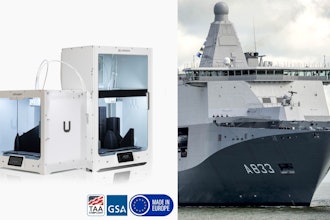
NEW YORK (AP) — The Trump administration's ongoing trade war with China has chilled the mergers and acquisitions market for U.S. manufacturers.
That's the finding of a survey of business brokers and M&A advisers conducted by researchers at Pepperdine University's Graziadio School of Business and two M&A industry groups, the International Business Brokers Association and the M&A Source.
About a quarter of the survey participants who advise businesses valued at up to $2 million said one or more of their sellers had been affected by tariff issues, and nearly a third of those valued between $2 million and $5 million reported the same trend.
Nearly half the brokers and advisers who work with the smallest businesses said they had sellers who decided not to sell their companies because of the tariffs. Fifty-five percent said they had sellers who reduced their asking price.
The toll that tariffs have taken on some companies is exacerbating the concerns many manufacturers and their would-be buyers have about the economy, which weakened during the second quarter.
"Our manufacturing clients are hardest hit, and some of them are choosing to wait it out," said Scott Bushkie, managing partner of Cornerstone Business Services, a broker who was quoted in the survey report. He predicted that some owners would now wait as many as seven years before trying to sell.
The survey results were issued two days after the Institute for Supply Management, a trade group for corporate purchasing executives reported a further slowing of the manufacturing sector during August. The ISM, whose members include small manufacturers, said new export orders fell to their lowest since April 2009 when global trade was hit by the financial crisis.
And Friday, the Labor Department reported that just 3,000 manufacturing jobs were created in August. Chad Moutray, chief economist with the National Association of Manufacturers, responded by saying, "manufacturers are currently challenged by a softening global economy and trade uncertainties, so it should not be a surprise that the sector experienced such meager job growth."
The tariffs have hurt manufacturers in several ways. Those who import raw materials like steel, components or finished products from China have been paying 25% more on their purchases. And those who export to China have been hurt by that country's retaliatory tariffs. Manufacturers whose customers have been hurt by the tariffs — for example, companies who sell to farmers — have seen their revenue fall.
The survey questioned 288 brokers and M&A advisers during the first three weeks of July.





















